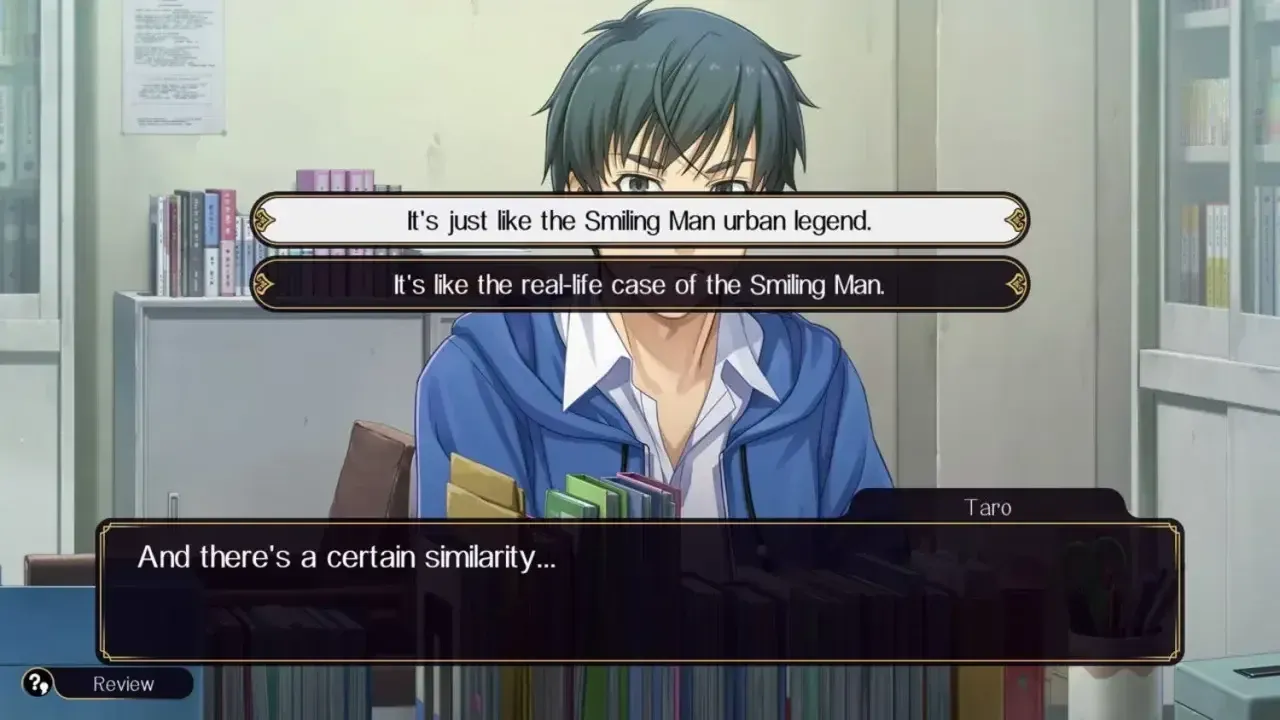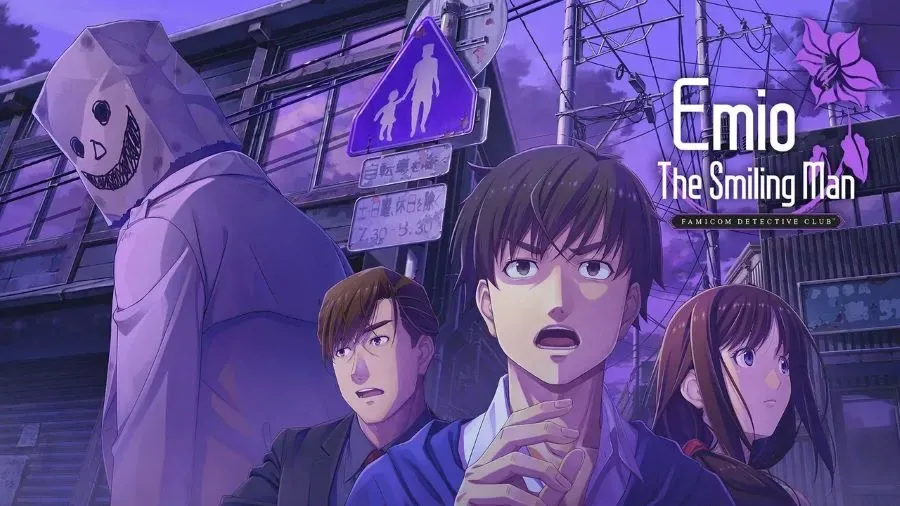Distributor provided a review copy.
One of my favorite movies of all time is Memories of Murder. Based on a true story, it charts the lives of detectives in Korea on the hunt for a serial killer. As the years pass, that hunt becomes more desperate, as they realize how little their chances become to catch the suspect.
Emio: The Smiling Man has that same mosaic feel: a sense of time passing and what a gaping hole those who’ve gone have left behind. It begins with a murder that opens old wounds decades later. The setting is that of a sleepy village somewhere in Japan, where small lives are defined by the acts of an unseen assailant.

Classic gameplay
Told as a visual novel, there is very little traditional gameplay to Emio. I didn’t mind the dated mechanics, because the story itself is riveting from beginning to end. In a way, the throwback to old-school gameplay heightens the mood. After all, this is the first Famicom Detective Club game in almost thirty years. Look at it from the viewpoint of the lead characters. We return to the scene of the crime, where life has come to a standstill. Others might move on, but those afflicted cannot.
That might be reading too much into it and giving the game more credit than it deserves. But the immersion is part of the fun. The same way we want to scare ourselves with true-crime podcasts and shows. There’s a sense of safe terror that is healthy. A peek into a world we hopefully never have to face for real.
Every chapter follows a similar pattern. You interrogate suspects and potential witnesses, as you try to piece together clues and half-truths along the way. Conversations require contextual actions, like “think” or “look/examine”, which the game highlights in the text. This doesn’t mean the gameplay is a breeze, though. As clues and suggestions come by fast, and there’s a deliberate pacing in how to approach each scenario. Again, it makes you feel like a detective, slowly unearthing that which others try to keep buried.

Old school charm
Where Emio somewhat stumbles is the pacing, and how the mystery unravels over time. You can’t really get anything wrong in the investigation. Every time you make a mistake, your partner helps you out. This is great narrative-wise, as it prevents you from repeating sections. But it does take out some of the actual gameplay elements. By the time the conclusion rolls around — which is abrupt and confusing — it feels unsatisfying that you don’t have anything to do with it. Even the conclusion sections at the end of every chapter, where you have to review evidence and statements, are surprisingly straightforward. It would be fantastic if you could get the case totally wrong, but I understand why it’s not a thing here.
Despite this, Emio is 99% a fantastic game. I’m not the biggest fan of visual novels, yet I was consistently enraptured by the mystery. The tone and style are terrific, and despite some underwritten characters, Emio is rich and textured where it matters.
It also balances scares with tension beautifully. This isn’t a gruesome game, but it is macabre. There’s an unsettling vibe to the whole thing. After all, the serial killer is always at large, and the only thing anyone knows about them is the signature paper bag with a smile scribbled on it. It taps into mundane things and perverts them. That unease permeates through every minute of the mystery, which in turn allows the game to feel threatening without overt violence.
For fans of murder mysteries, thrillers, and visual novels, Emio: The Smiling Man is a must-buy. For everyone else, it’s a solid recommendation with some caveats. You’ll have to adjust to an old-school play style, and it won’t deliver the constant gamification modern titles offer. If you can overlook these aspects, Emio offers a smart, often terrifying experience that is different from anything else out right now.














